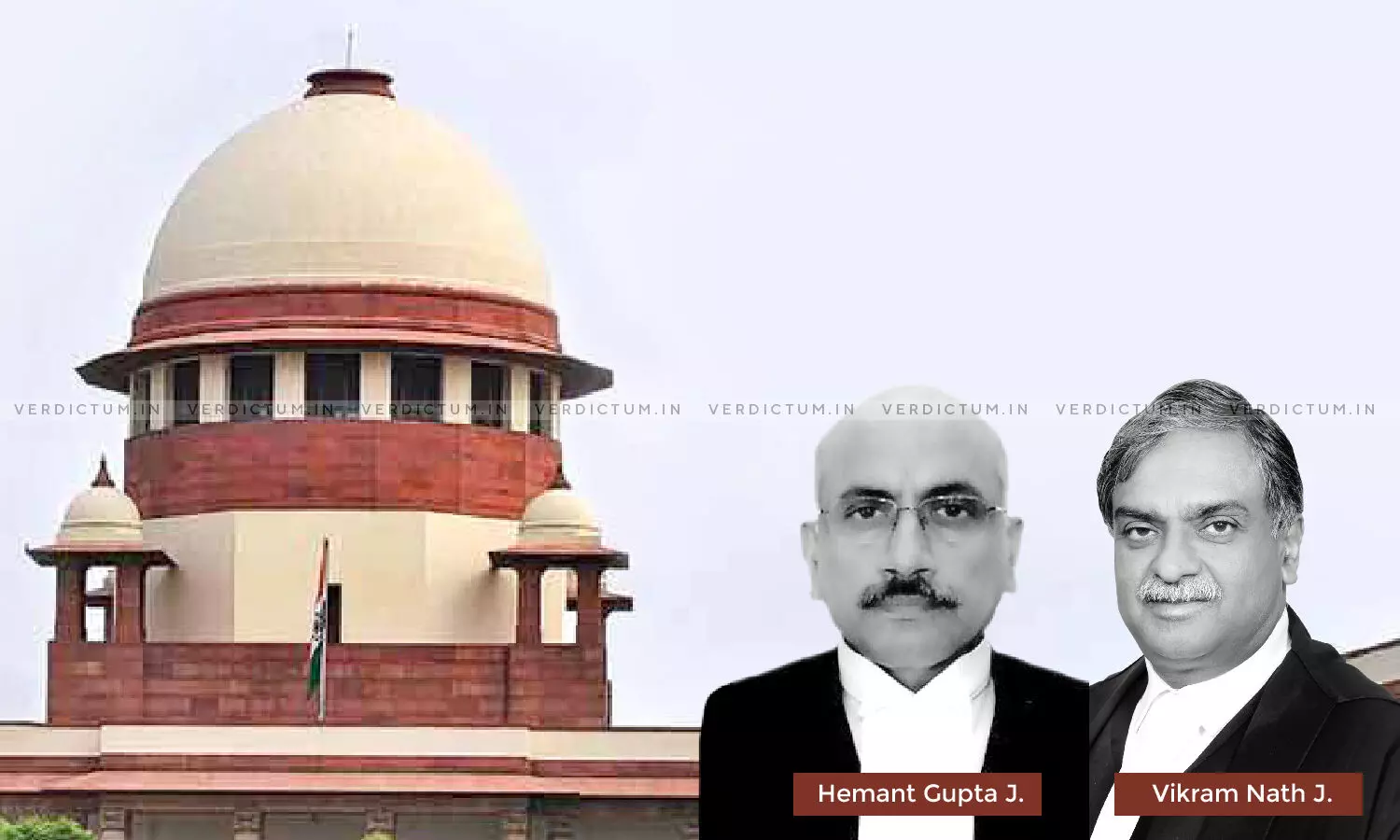
Order Reserving Posts For Disabled Candidates Should Not Be Interfered With Unless It Is Totally Arbitrary, Irrational: SC
 |
|The Supreme Court has recently observed that the identification of the posts and the category of the disabled candidates is the power conferred on the appropriate Government and such exercise and the reservation of posts should not be interfered with unless such reservation is arbitrary or irrational.
"The identification of the posts and the category of the disabled candidates who could be appointed against the posts reserved is the power conferred on the appropriate Government. Such exercise and the reservation of posts could not have been interfered with without holding such reservation to be totally arbitrary, irrational or against the objectives sought to be achieved and on judicially recognised principles." the Bench of Justice Hemant Gupta and Justice Vikram Nath opined.
In the instant case, an appeal was filed against an order passed by the Allahabad High Court whereby though the Government Order identifying the posts which can be manned by suitable disabled candidates under Persons with Disabilities Act, was struck down, but selection to the post of Safai-Karmis made in pursuance of the advertisement was not interfered with.
The advertisement was published inviting applications for 1651 posts of safai-karmis out of which posts were reserved for Scheduled Caste, Scheduled Tribe and for Other Backward Class.
The appellants mentioned in the writ petition that there were 50 posts reserved for disabled candidates. However, such 50 posts were said to be on the basis of 3% of the total posts advertised and not as per the reservation policy of appointment of the disabled candidates in the State.
The appellants, being persons with locomotor disability, submitted their application forms with locomotor disability certificates. It was the case of the appellants that they participated in the cycle test and also appeared for interview but were not appointed, which led them to file writ petition before the High Court in 2018.
The High Court struck down the said government order as it found it ultra-vires to the constitution but selection to the post of Safai-Karmis made in pursuance of the advertisement was not interfered with.
Advocate Sanjeev Malhotra for the appellants contended that once the said Government Order has been struck down, as a consequence thereof, the appellants were entitled to be appointed in the category of persons suffering from locomotor disability.
On the other hand Advocate Ruchira Goel for State submitted that the G.O. itself was wrongly struck down by the High Court. It was contended that the High Court had completely misread the G.O.
At the outset the Supreme Court examined Section 32 and Section 33 of the Persons with Disabilities (Equal Opportunities, Protection of Rights and Full Participation) Act, 1995.
After which the Court opined that the High Court completely misread Sections 32 and 33 of the Act.
"A reading of the impugned judgment of the High Court shows that 3% posts in each cadre dehors the identification of the posts are to be reserved for persons with disability, with blindness or low vision, hearing impairment and locomotor disability. We find that such view of the High Court is not the correct enunciation of law. The 3% reservation is to be in an establishment and not in all cadres of an establishment irrespective of the nature of job.", the Bench noted.
The Court further observed that the government order identifying the posts which can be manned by such suitable disabled candidates under the said Act, could not be set aside in exercise of the power of judicial review on the basis of cursory glance of the G.O.
The Court noted that "The identification of the posts which can be filled up by candidates suffering from disabilities is the responsibility of the appropriate Government under Section 32 of the Act, which is the State Government in the present case. Once such exercise has been carried out, the appropriate Government in terms of Section 33 of the Act shall reserve 1% each for the visual disability, hearing impairment and locomotor disability."
The Court held that the identification of the posts and the category of the disabled candidates who could be appointed against the posts reserved is the power conferred on the appropriate Government.
The Court further observed that such exercise and the reservation of posts could not have been interfered with without holding such reservation arbitrary or irrational.
The Court also held that the appellants who had appeared for cycling test or for interview cannot claim appointment against the post reserved for disabled candidates only for the reason that they are locomotor disabled candidates when such post was not reserved for the Safai-Karmis.
"Since the posts of Safai-Karmis are not identified to be filled up from amongst the candidates having locomotor disability, the appellant could not be appointed against such category of post, even though they have appeared for cycling test or for interview.", the Court noted while disposing of the appeal.
Cause Title- Ajay Kumar Pandey & Ors. v. State Of U.P. & Ors
Click here to read/download the Judgment